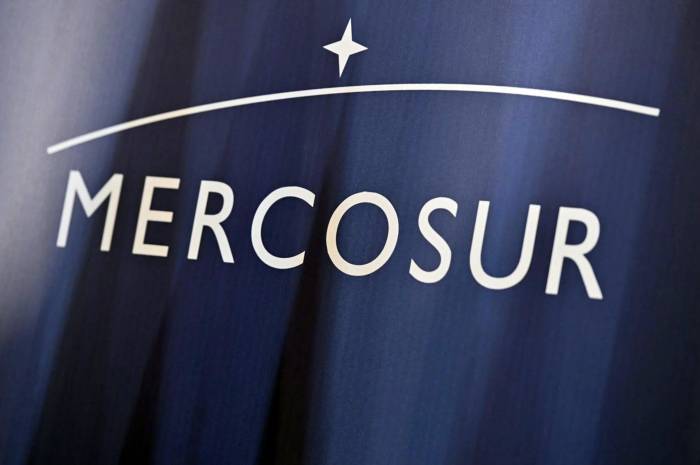European Union advances Mercosur trade deal as wine sector celebrates and farmers voice concerns
Agreement promises new export opportunities but raises fears over food safety, competition, and standards among European agricultural groups
2025-09-04

The European Commission has approved the long-awaited free trade agreement between the European Union and Mercosur, a bloc that includes Argentina, Brazil, Paraguay, and Uruguay. The decision was made by the College of Commissioners and marks a significant step forward for the deal, which now awaits votes from the European Council and Parliament, expected by the end of the year. The agreement also covers an updated trade pact with Mexico.
The wine sector across Europe has welcomed the news. The Comité Européen des Entreprises Vins (CEEV), which represents major wine associations including Italy’s Unione Italiana Vini (UIV) and Federvini, highlighted the importance of diversifying export markets amid global economic and geopolitical challenges. Marzia Varvaglione, president of CEEV, called on EU lawmakers to ratify the agreement quickly so that both producers and consumers can benefit without delay.
Wine exports from the EU are valued at nearly 16 billion euros annually, making it the world’s leading exporter. While Latin American markets remain small in absolute terms—EU wine exports to Brazil and Mexico each hover around 200 million euros—they are seen as dynamic markets with strong growth potential. The agreement is expected to eliminate tariffs, strengthen protection for geographical indications, simplify import procedures, and create more predictable trading conditions for wine. For example, Brazil currently imposes a 27% tariff on EU wines, a significant barrier that will be removed under the new deal.
Lamberto Frescobaldi, president of UIV, noted that while no market can replace the United States for Italian wine exports, expanding into Mercosur’s 270 million-strong population offers new business opportunities. According to UIV’s observatory, Brazilian imports of Italian wine grew by 5.5% in value in the first half of this year, reaching 18.5 million euros. Overall European wine imports into Brazil reached 190 million euros in 2024, up 41% over five years.
However, while the wine industry is optimistic about increased access to Latin American markets, agricultural organizations across Italy have expressed serious concerns about the broader implications for farming. The agreement will create what Brussels describes as the world’s largest free trade area, covering more than 700 million consumers. The Commission estimates that EU exports to Mercosur could rise by up to 39%, supporting over 440,000 jobs in Europe.
The deal will reduce or eliminate high Mercosur tariffs on key EU exports such as cars (currently at 35%), machinery (14-20%), pharmaceuticals (up to 14%), and food products like wine (up to 35%), chocolate (20%), and olive oil (10%). It also provides protection for 344 EU geographical indications and limits preferential imports of sensitive agricultural products from Mercosur to a small fraction of EU production—1.5% for beef and 1.3% for poultry.
Despite these safeguards, Italian farm groups remain wary. Confagricoltura pointed out unresolved issues regarding beef, poultry, rice, corn, and sugar. President Massimiliano Giansanti stressed that reciprocity in environmental, health, and social standards is essential; otherwise, European farmers cannot compete with less regulated producers abroad.
Coldiretti and Filiera Italia echoed these concerns. They warned that without strict controls on all imported agri-food products and automatic activation of safeguard clauses in case of market disruption, European agriculture could face unfair competition from countries where banned antibiotics and pesticides are still used. According to Coldiretti data based on EU food safety alerts (RASFF), there were 130 food safety incidents linked to Mercosur imports in the first nine months of this year—over a third involving meat.
Cia-Agricoltori Italiani also called for rapid and transparent implementation of safeguard measures to protect sensitive sectors like meat, sugar, and cereals from low-cost imports produced under lower standards. They opposed using funds from the Common Agricultural Policy’s crisis reserve to compensate for potential losses caused by the agreement.
Fedagripesca Confcooperative raised concerns about increased imports of animal feed, poultry meat, cereals, sugar, and rice without guarantees that these products meet EU standards. President Raffaele Drei criticized what he sees as a contradiction between Europe’s push for sustainable agriculture through initiatives like the Green Deal and trade policies that allow imports produced under less stringent rules.
The Italian government welcomed additional safeguard measures included in the agreement package but said it would assess their effectiveness before deciding whether to support final approval in Brussels. These measures include rapid monitoring and intervention mechanisms in case of price disruptions at national level and strengthened phytosanitary controls on incoming goods.
The Commission has promised accompanying initiatives such as aligning production standards on pesticides and animal welfare for imported goods but confirmed there will be no changes to existing EU sanitary requirements. It also highlighted continued support for farmers through a separate post-2027 Common Agricultural Policy budget of at least 300 billion euros for income support and a new crisis reserve totaling 6.3 billion euros.
With formal ratification still pending in both Brussels and member states’ parliaments, debate continues over whether the benefits for sectors like wine outweigh risks to agriculture more broadly. For now, while exporters look forward to new opportunities in Latin America, many farmers remain cautious about increased competition from abroad.
Founded in 2007, Vinetur® is a registered trademark of VGSC S.L. with a long history in the wine industry.
VGSC, S.L. with VAT number B70255591 is a spanish company legally registered in the Commercial Register of the city of Santiago de Compostela, with registration number: Bulletin 181, Reference 356049 in Volume 13, Page 107, Section 6, Sheet 45028, Entry 2.
Email: [email protected]
Headquarters and offices located in Vilagarcia de Arousa, Spain.